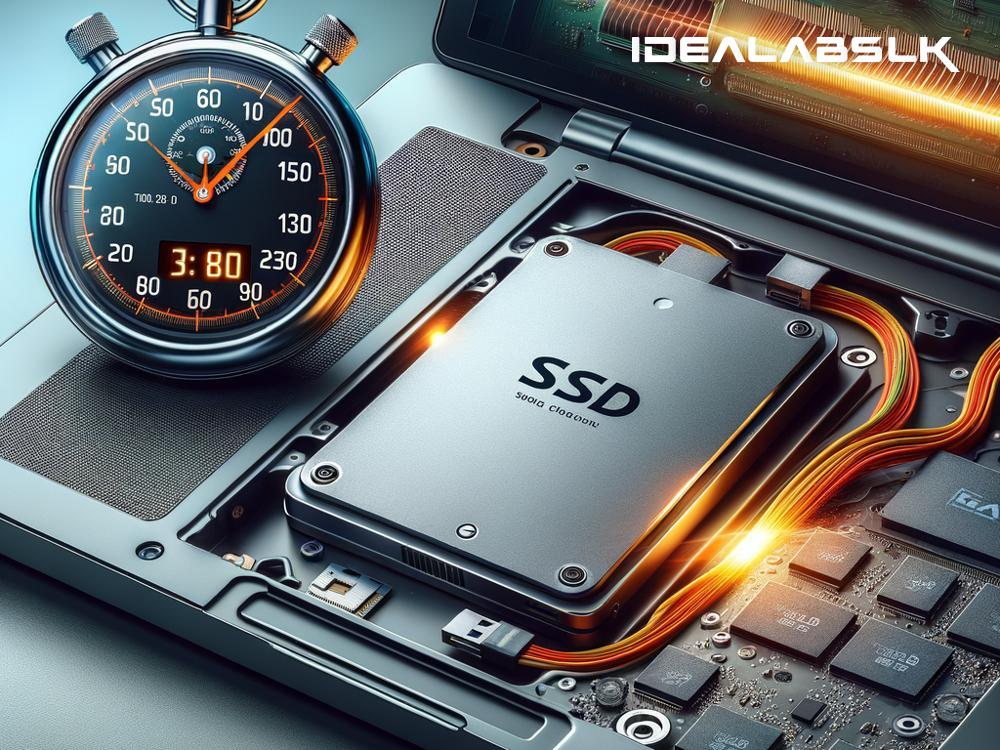The Impact of SSDs on Software Loading Times
Imagine you're super hungry and want to make a quick snack. Would you rather spend a long time cooking a complicated recipe or grab something ready to eat in just a minute or two? Most of us would prefer the quicker option. When it comes to using computers, loading software quickly is kind of like getting to that snack faster. And this is where SSDs, or Solid State Drives, come into play, making a world of difference in how quickly our software loads.
A Quick Introduction to SSDs:
SSDs are a newer type of hard drive used in computers. Unlike the older HDDs (Hard Disk Drives), which use spinning disks to read and write data (think of a CD player but more sophisticated), SSDs have no moving parts. Instead, they use flash memory — similar to what's in a USB thumb drive but much faster and more reliable. This fundamental difference is why SSDs are much faster at fetching and storing data.
How Do SSDs Speed Up Software Loading Times?
-
Immediate Access: Since SSDs use flash memory, they can access data almost instantly. There's no need to wait for a disk to spin up and a read/write head to find the data on the disk. This means when you click on a software icon, SSDs can start loading it right away.
-
Faster Data Transfer: SSDs can move data much faster than HDDs. They're like a high-speed train compared to HDDs' horse-and-cart approach to data transfer. This speed means all the bits and pieces of your software get from the storage to the CPU (the computer’s brain) faster, making the software ready to use sooner.
-
Better Multitasking: When you're trying to run several programs at once, an HDD might struggle, making everything slow to a crawl. In contrast, an SSD can handle multiple data requests better, letting you switch between software without bogging down your system.
-
Reduced Fragmentation Impact: Over time, the files on an HDD can become fragmented, meaning they're scattered in pieces across the disk. This makes loading times slower because the drive head has to jump around to collect all the pieces. While SSDs can also become fragmented, their performance is far less affected due to their immediate access nature.
Real-World Impact of SSDs on Everyday Software
- Operating Systems: Whether it’s Windows, macOS, or Linux, an operating system stored on an SSD will boot up in seconds, not minutes. This speedy start times mean less waiting around every time you turn on your computer.
- Productivity Software: Programs like Microsoft Office or Adobe Photoshop become more responsive with SSDs. You'll notice less lag when opening large documents or editing high-resolution images.
- Gaming: Gamers see a significant benefit from SSDs. Games with large, open worlds, like "The Witcher 3" or "GTA V," load faster, making transitions between game areas smoother and less disruptive to the gaming experience.
- Web Browsers: Even browsing the internet feels snappier with an SSD. Opening your browser and loading complex websites is quicker, making your overall online experience more pleasant.
The Future with SSDs
The future of computing seems to be firmly in the camp of SSDs. Prices have dropped significantly, making them accessible to more people, and their capacities continue to increase. We're also seeing innovations like NVMe (Non-Volatile Memory Express) SSDs, which are even faster than traditional SATA SSDs, promising near-instantaneous software loading times.
To Sum It Up
The introduction of SSDs into the computing world has significantly improved our experiences with software loading times. It's like moving from dial-up internet to high-speed broadband. The difference is night and day. From booting up your operating system to loading complex software and games, everything is faster with an SSD.
If you’re still using an HDD, consider upgrading to an SSD. It’s a simple change that can significantly enhance your computer's speed and your productivity. In the fast-paced digital world we live in, every second counts, and SSDs help make sure we spend less time waiting and more time doing.

